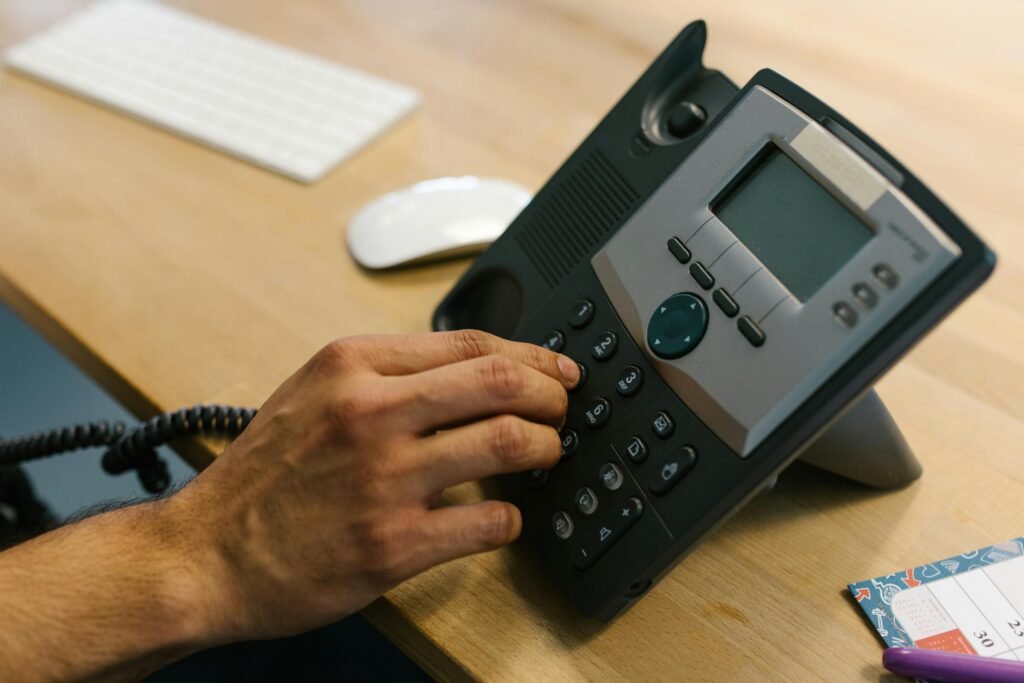
Understanding Stress and Burnout
Stress is a natural reaction to various demands, but when experienced chronically, it can culminate in burnout.
This condition is characterized by a state of emotional, physical, and mental exhaustion that can severely impact both personal and professional life.
Individuals in high pressure jobs; those that often involve tight deadlines, heavy workloads, and relentless expectations, are particularly at risk for developing burnout.
One of the earliest signs of burnout is feeling consistently overwhelmed.
Tasks that were once manageable can start to seem insurmountable, leading to procrastination and a drop in productivity.
Another key indicator is persistent fatigue.
Unlike normal tiredness, this kind of fatigue doesn’t go away with a good night’s sleep or a weekend off; it lingers and makes even small tasks feel daunting. Emotional detachment is also a common symptom.
You may find yourself becoming cynical or apathetic about your work, feeling disconnected from colleagues, or losing the sense of satisfaction that you used to derive from your accomplishments.
Understanding these symptoms is crucial for taking proactive steps to combat burnout.
Awareness allows you to identify early warning signs and take timely action to protect your mental health.
Ignoring these signs can lead to more severe consequences, including chronic illnesses, severe anxiety, and depression.
High achieving professionals often fall into the trap of neglecting their own well being in pursuit of career goals.
This can create a vicious cycle: the more you ignore your mental and physical health, the more stress and burnout you are likely to experience.
This underscores the importance of adopting daily self care routines tailored to your specific needs and circumstances.
For instance, regular breaks during work hours can be immensely beneficial.
Short pauses to stretch, walk, or simply breathe deeply can help reset your mind and improve concentration.
Additionally, regular exercise is not just good for your body but also for your mental well being.
Physical activity releases endorphins, which act as natural stress relievers and mood enhancers.
It’s also vital to set realistic goals and manage your expectations.
Often, high achieving professionals set the bar exceptionally high for themselves, which can lead to unnecessary stress.
Learn to differentiate between what’s urgent and what’s important, and prioritize your tasks accordingly.
Delegating tasks and learning to say no are also essential skills that can help you manage your workload more effectively.
Another important aspect is to cultivate a supportive environment both at work and home.
Open communication with your manager and colleagues about your workload and stress levels can lead to practical solutions.
Similarly, having a network of friends and family to lean on can provide emotional support and different perspectives on dealing with stress.
Understanding the mechanics of stress and burnout is the first step in combating them.
By recognizing the signs early and implementing effective self care strategies, you can navigate the challenges of high pressure jobs more effectively and maintain a healthier work life balance.
Importance of Daily Self Care

Daily self care is essential for managing the stress associated with high pressure jobs.
When professionals incorporate self care practices into their routines, they equip themselves with tools to navigate challenges more effectively.
Self care is not a luxury; it’s a necessity for maintaining both mental and physical well-being.
One key aspect of self care is regular physical activity. Exercise is a powerful stress reducer and can significantly improve mood and energy levels.
Incorporating activities like walking, jogging, or yoga into your daily routine can have a profound impact on your ability to handle work related stress.
Nutrition and sleep also play crucial roles in self care.
Eating a balanced diet that includes a variety of nutrients supports overall health and keeps energy levels stable throughout the day.
Ensuring you get enough sleep is equally important.
Adequate rest not only helps you feel refreshed but also improves cognitive function, making it easier to tackle demanding tasks.
Mental self care is just as important.
Practices like mindfulness and meditation can help center your thoughts and provide a sense of calm amid the chaos of a busy workday.
Taking regular breaks to breathe deeply or practice short meditation sessions can help reset your mind and improve focus.
Listening to music while working is another technique that can foster concentration, reduce stress and anxiety, and stimulate creativity.
Setting boundaries is an often overlooked yet vital component of daily self care.
Professionals in high stress careers frequently struggle with saying no to additional tasks or delegating responsibilities.
However, recognizing your limits and managing your workload effectively can greatly reduce stress levels.
Studies suggest that the more control workers have over their tasks, the less stressed they feel.
Finally, don’t underestimate the power of social connections.
Maintaining a support network of friends, family, or colleagues can provide emotional relief and different perspectives on dealing with stress.
Joining support groups or professional networks can also offer valuable advice and shared experiences, helping you feel less isolated in your struggles.
By incorporating these daily self care routines, you can enhance your resilience, improve your mental and physical health, and better manage the demands of a high-pressure career.
Physical Self Care Practices

Physical self care practices play a vital role in maintaining both physical and mental well being, especially for those in demanding careers.
Regular physical activity is one of the most effective ways to reduce stress and anxiety.
Incorporating activities like walking, jogging, or yoga into your routine can have a profound impact on your overall health.
Beyond exercise, nutrition is another cornerstone of physical self care.
Eating a balanced diet rich in various nutrients helps sustain energy levels throughout the day, making it easier to tackle your workload.
Focus on consuming whole foods such as fruits, vegetables, lean proteins, and whole grains.
Avoid excessive caffeine and sugar, as these can lead to energy crashes and increased stress levels.
Adequate sleep is equally important.
Consistently getting 7-9 hours of quality sleep each night can greatly improve your ability to manage stress and enhance cognitive function.
Poor sleep can exacerbate feelings of fatigue and overwhelm, making it harder to cope with daily challenges.
Establishing a regular sleep schedule and creating a relaxing bedtime routine can help improve the quality of your sleep.
Hydration is another key aspect of physical self care.
Drinking enough water throughout the day supports bodily functions and can help prevent fatigue and headaches.
Aim to drink at least eight 8-ounce glasses of water daily, and more if you’re physically active.
Stretching and flexibility exercises can also be beneficial, particularly if you have a sedentary job.
Taking a few minutes to stretch during work breaks can relieve muscle tension and improve circulation.
Practices like yoga or Pilates can enhance flexibility, reduce stress, and improve overall physical health.
Incorporating small physical activities into your day can make a significant difference as well.
Opt for taking the stairs instead of the elevator, or take short walks during lunch breaks.
These small changes can add up and contribute to better physical health and reduced stress levels.
Listening to your body is crucial.
Pay attention to signs of physical exhaustion or discomfort and take action to address them.
Whether it’s taking a short nap, adjusting your posture, or getting a massage, responding to your body’s needs can prevent minor issues from escalating into major problems.
Finally, consider incorporating relaxation techniques into your physical self care routine.
Activities such as deep breathing exercises, progressive muscle relaxation, or spending time in nature can help reduce stress and promote a sense of calm.
By integrating these practices into your daily life, you can better manage the demands of a high pressure job and maintain a healthier, more balanced lifestyle.
Mental Self Care Techniques

Incorporating mental self-care practices into your daily routine is essential for maintaining mental clarity and reducing stress.
Mindfulness and meditation are highly effective tools that can be easily integrated into your day.
These practices help center your thoughts and enhance emotional regulation.
Taking regular breaks to practice deep breathing can refresh your mind and alleviate tension.
Breathing exercises can be as simple as inhaling deeply for a count of four, holding for four, and exhaling for four.
These small moments of mindfulness can make a significant difference in your mental state, providing a quick reset amidst a busy day.
Listening to music while working is another technique that can foster concentration, reduce stress and anxiety, and stimulate creativity.
Choose music that you find calming or uplifting, and let it play softly in the background as you work.
This can create a soothing atmosphere and help you stay focused.
Another valuable mental self-care technique is journaling.
Taking a few minutes each day to jot down your thoughts, feelings, and experiences can help you process emotions and gain perspective.
This practice can be particularly useful for high achieving professionals, as it allows for self reflection and can highlight areas where you may need to adjust your workload or priorities.
Visualization is also a powerful mental self-care tool.
Spend a few moments each day visualizing a peaceful place or a successful outcome to a challenging situation.
This technique can reduce anxiety and enhance your overall sense of well being.
Visualization helps create a mental buffer against stress, making it easier to handle daily pressures.
Engaging in hobbies or activities that you enjoy can also contribute to mental well being.
Whether it’s reading, painting, gardening, or playing an instrument, dedicating time to activities that bring you joy can provide a much needed mental break from work related stress.
These activities offer an opportunity to unwind and recharge, making it easier to face professional challenges with a refreshed mind.
Connecting with nature can have a profound impact on mental health.
Spending time outdoors, even if it’s just a short walk in a park, can reduce stress and improve mood.
The natural environment offers a calming effect and can help clear your mind, making it easier to return to work with a more focused and positive outlook.
Finally, seeking professional support when needed is a critical aspect of mental self care.
Therapists or counselors can provide valuable guidance and coping strategies tailored to your specific needs.
Regular sessions with a mental health professional can help you navigate stress and prevent burnout, ensuring you maintain a healthy balance between work and personal life.
Setting Boundaries

Creating clear boundaries between work and personal life is essential for preventing burnout, especially for professionals in high stress careers.
High achievers often find it challenging to say no to additional tasks or delegate responsibilities, but recognizing and respecting your limits is crucial for maintaining your well being.
One effective strategy for setting boundaries is to clearly define your work hours and stick to them.
Resist the temptation to check emails or work on projects outside of these hours.
This can help you mentally separate work from personal time, giving you space to recharge.
Communicate your availability to your colleagues and managers, ensuring they understand when you are off the clock.
Another important aspect is to prioritize your tasks effectively.
Focus on the most critical and high impact activities, and don’t be afraid to delegate or postpone less urgent tasks.
Learning to prioritize not only helps manage your workload but also reduces the feeling of being overwhelmed.
Studies suggest that the more control workers have over their tasks, the less stressed they feel.
This sense of control can significantly alleviate stress and improve job satisfaction.
Effective communication is also key in setting boundaries.
Be upfront with your manager and team about your workload and any challenges you are facing.
Open dialogue can lead to practical solutions, such as redistributing tasks or extending deadlines.
It’s important to advocate for yourself and ensure your concerns are heard and addressed.
Implementing a routine can further support boundary setting.
Establish a daily schedule that includes time for work, breaks, and personal activities.
Sticking to a routine can create a sense of stability and help you manage your time more efficiently.
Incorporate regular breaks to relax and reset, ensuring you maintain a balanced approach to your day.
Another helpful practice is to set physical boundaries in your workspace.
If you’re working from home, designate a specific area for work and avoid using it during your personal time.
This physical separation can help you switch off from work mode when you’re done for the day.
Learning to say no is a powerful tool in maintaining boundaries.
While it can be difficult, especially for those who are used to taking on every challenge, saying no to non essential tasks can free up time and energy for more important activities.
This doesn’t mean rejecting every request but rather being selective and mindful about what you commit to.
Lastly, practice self compassion.
Understand that it’s okay to set boundaries and prioritize your well-being.
Seeking Support

Seeking support is an essential aspect of managing stress and preventing burnout, especially in high-pressure careers.
Having a reliable network of friends, family, or professional contacts can provide the emotional and practical assistance needed to navigate challenging times.
Building a support system involves nurturing relationships with people who understand and empathize with your situation.
Regularly connecting with loved ones can offer a much needed outlet for expressing your thoughts and feelings.
Engaging in conversations about your experiences can provide clarity and reduce feelings of isolation.
Therapy and counseling are invaluable resources for those experiencing high levels of stress and burnout.
Mental health professionals can offer personalized strategies and coping mechanisms tailored to your specific needs.
Regular sessions can help you develop resilience and gain perspective on your challenges.
Support groups and professional networks can also be beneficial.
These communities often consist of individuals who face similar professional pressures, providing a platform to share experiences and solutions.
These interactions can offer new perspectives and practical advice, making it easier to handle work-related stress.
Being part of a supportive community can help validate your feelings and reduce the stigma associated with seeking help.
Employers and colleagues can also play a critical role in your support system.
Open communication with your manager about your stress levels and workload can lead to practical adjustments, such as redistributing tasks or extending deadlines.
Collaborating with colleagues to share responsibilities can lighten your load and foster a more supportive work environment.
Mentorship is another valuable form of support.
A mentor can offer guidance, share their experiences, and provide insights that can help you navigate your career more effectively.
Regular check ins with a mentor can help you stay focused on your goals and maintain a balanced approach to your professional life.
Workplace wellness programs are designed to support employees’ mental and physical health.
Taking advantage of these programs can provide additional resources for managing stress and preventing burnout.
These programs often include stress management workshops, wellness activities, and access to mental health professionals.
Remember, seeking support is a sign of strength, not weakness.
It’s important to recognize when you need help and take proactive steps to find it.
Whether it’s through personal relationships, professional counseling, or workplace resources, having a robust support system can make a significant difference in your ability to manage stress and prevent burnout.
Research indicates that people with stronger support systems tend to have more robust immune responses to illnesses compared to those without such support.
These connections not only provide comfort but can also offer new perspectives on handling stress.
